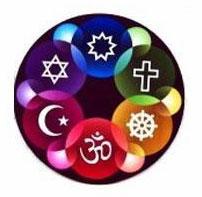
Interfaith Dialogue for Sustainable Peacekeeping
In What Ways Can the Increased Engagement of Women in Interfaith Dialogues Contribute to Advancements in the Search for Sustainable Peacekeeping?
In our globalized world, different religions and cultures face each other incessantly in all aspects of daily life, so it seems clear enough that this element of human relationships is not one to be neglected or cast aside, as otherwise, there will be nothing but unrest unless interfaith dialogue is promoted continuously and brightly. Interfaith dialogue has offered a practical passage for women of different faiths to come together and engage in positive exchanges of perspectives and ideas. Women often lack the ability or opportunity to diplomatically converse about subjects to do with religion and faith, and what the USFMEP strongly believes in is that in discussion, the intention is not to advocate but to question; not to dispute but to learn; not to convince, but to discover.
Interfaith dialogue among people of different faiths together on a common ground is the primary purpose for each contributor to learn from the other so that they can change and grow, while searching for a resolution for advancement in the process of sustainable peace. In a world stressed from chronic violence and division, the peace process cannot afford to be lacking in perspectives and diverse voices, and interfaith dialogues are prime platforms for such contributions where the perspective of women, who otherwise unheard, can raise their voice. This style of discussion is a powerful tool in the search for peace because it works to heal humanity, construct faith, and restore associations across different groups. Interfaith dialogue has proven an effective means for building strong bridges and not walls for sustainable peace, and should continue to do so.
In our world of today, where we face both rising and chronic conflict often stemming from religious intolerance and hatred, the matter of searching for peace between local, regional and multicultural communities is more pressing than ever. Shockingly, according to the Financial Times, more than 100,000 people have died violently amidst fierce conflict in Syria, Iraq, Libya, Yemen and the Gaza Strip in the year 2014 alone, with perhaps 33% or more being civilians. This is an alarming indication of our modern day consequence of conflict, and whether violence leads to death due to religious, territorial or ideological reasons, it is a tragic end for issues that may be solved otherwise, with the help from the international community. Thus, if it is in our power to stop destruction, particularly that which stems from interfaith sources, then it is our duty as stewards of this Earth to find a solution, and interfaith dialogue is a vessel just for that, and we must not underestimate the power of dialogue. The incorporation of women in the peace process has been shown to be very effective in decreasing violence—and when the contribution is from within the local community itself, women are the most about developing peace in their regions. In this sense, religious women have a unique advantage in conflict resolution because they are active in their local religious groups and have a strong foundation in the communities they serve.
Religious women offer a unique perspective to conflict resolution in many ways. Their experience in society gives them more insight into the plights of marginalized groups and how to address problems of discrimination and prejudice that are the root of so many international and domestic conflicts. Although many people see religion as a source of division in the modern world, it can also be a channel for solution.
We understand that engaging in interfaith dialogue may not be the easiest endeavor for some. To learn the ability of dialogue is both a personal and socially interactive process. As eloquently stated by UNESCO, developing one’s own skills and competences for dialogue signifies the determined preparedness to be tolerant and open, while retaining one’s critical judgment. After all, dialogue is an aspect of life that concerns us all: from decision and policymakers, to global leaders, to individuals within every community in the world. USFMEP stresses the importance of standing in unison, as one strong minded and dedicated international community, committed presenting the goal to attain peace, security and justice. In light of this, interfaith, interreligious and intercultural dialogue is critical for the survival of humanity.
